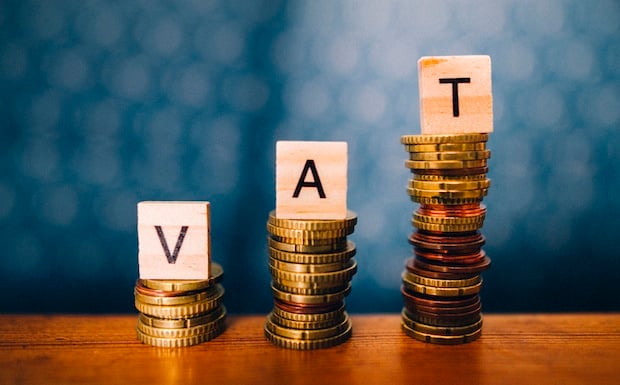The six GCC member states - Saudi Arabia, Bahrain, Kuwait, Oman, Qatar and the United Arab Emirates - when they signed the VAT framework agreement in early 2017, confirmed their entry into a new phase in the region's economic development.
The GCC countries then made the decision to introduce VAT for the first time in the six Gulf countries, and each country in turn had to ratify VAT regulations locally. What was the impact of this VAT on business in the GCC countries? That's what we'll recognize in the rest of the article, read on.
.jpg)
What is VAT?
Value added tax (VAT), or its equivalent, GST, or general sales tax (often abbreviated as TGV), is an indirect tax applicable to physical goods or services and, as its name suggests, is invoiced when adding value to a product during a stage of the supply chain, which extends from production to the point of sale.
VAT is already common in most major economies around the world, and out of 193 United Nations Member States, 153 have implemented (79%) VAT already, Saudi Arabia and the United Arab Emirates are the first two countries to impose 5% VAT on most goods and services as of 1 January 2018 to increase tax revenues amid lower oil prices and increased public spending,
The GCC countries' decision to introduce their own VAT system is seen as a major step towards modernization, generating additional government revenues that will protect against oil price volatility and aligning the region with other major economic conglomerates, such as the European Union and North America.
VAT stakeholders
The vast majority of companies in the GCC need to ensure that VAT requirements are determined efficiently and accurately and reporting by automating these new processes, companies that achieve minimum annual turnover must register for VAT. But small organizations that offer less than minimum requirements will not need to register, Companies that distribute goods and services in certain industries will also not need such as health care and education, to comply with VAT regulations.
Impact of VAT on business in the GCC
There are some common VAT impacts on each company and some specific impacts, depending on the supply categories, we mention:
1. VAT's combined effects on companies
When VAT is introduced in any country, each company has to conduct an impact assessment to assess the impact of VAT, and based on the impact assessment, they will be able to see which areas of business VAT will have an impact on and what they should do to apply it properly.
Based on impact assessment, companies will also be able to adopt the appropriate tax status for their supply, companies will be able to know the eligibility of VAT registration, impact on working capital and their system, required changes in operations, compliance requirements and so on.
Companies have to properly implement VAT which requires changes in the system, modify current processes, train employees, communicate with suppliers and customers etc.
Once VAT is operational, companies are required to file a VAT return, and while filing VAT returns, companies cannot claim input tax on certain purchases/expenses, as all such prohibited input tax will become a cost for companies, such as:
Parties' expenditures and non-commercial expenditures
Expenses related to a car that can carry less than 10 people and is available for personal use
expenses relating to employees' dependants where companies have no legal obligations.
Companies require a workforce to comply with VAT, so this will increase the cost of management and employment. Sometimes, companies have to hire consultants which will increase consulting fees.
2. VAT's specific impact on business
As far as the specific impact of VAT on business based on supply categories and industries dealing with standard rated supplies is concerned, VAT will affect their customers' purchasing power and have a negative impact on the demand for their supplies.
VAT will have a negative impact on the worker's capital with VAT registered companies that have longer payment terms with customers and shorter payment terms with suppliers, Vice versa, while companies dealing with exempt supplies will not be able, such as transportation of local passengers, banks and financial institutions that provide margin-based services, suppliers of abstract land, etc., from claiming related input tax.
The said input tax will become a cost to the supply companies, resulting in an increase in the cost of operating the business, Most likely, such companies will transfer this cost to their customers by increasing their supply prices to achieve their target margins. So it will have a negative impact on the purchasing power of its customers which will affect the demand for their supply and, in return, acts dealing with zero and extra-zero supplies, VAT will have no significant effects on it except for common effects as mentioned above.
In general, although it is the end consumer who bears the final cost of VAT, rather than companies in the supply chain, these companies still act as collecting agents, and this is one of the main attractions of VAT, as this reduces the administrative burden on the state, and "reduces misrepresentation and tax evasion."
Conclusion:
The VAT Act results in a new demand for business in terms of human resources from skills and competencies (e.g. tax accountants and consultants), although the business will try to reduce these costs by delegating these responsibilities to current employees (i.e. accountants), taxes are a new area where business can be severely penalized in the event of errors or inability to provide adequate records at the time of filing tax proceeds.
other topics:
reference
1. << Everything new businesses need to know about VAT >>, specialityfoodmagazine.
2. << What are the major impacts of VAT>>, khaleejtimes.
2. << What are the major impacts of VAT>>, khaleejtimes.

Add New Comment